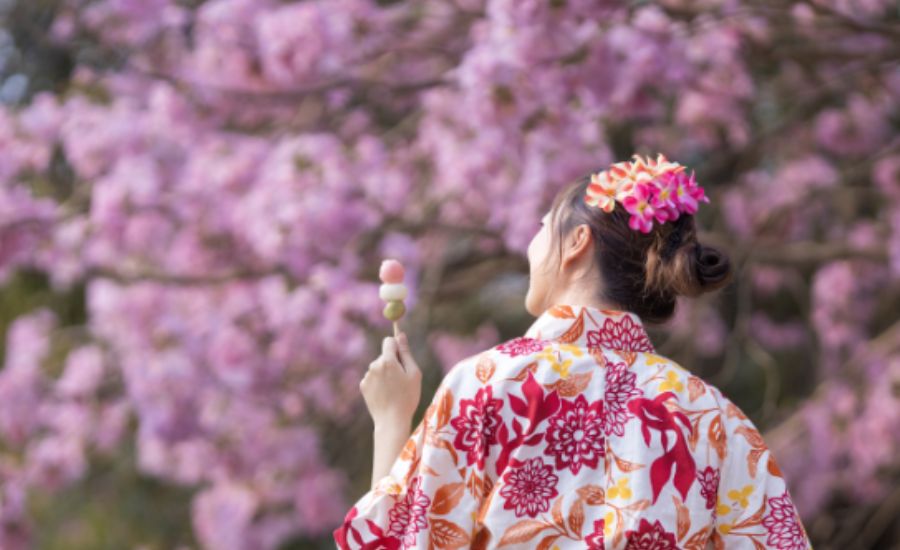Tonnosuke Uchi No Yome San Kakkokari, Exploring, Insights & More
Introduction
Delving into the intricacies of modern relationships can be both intriguing and enlightening, particularly through the unique cultural perspectives offered by Japan. Among the fascinating ideas within this landscape is “Tonnosuke Uchi no Yome San Kakkokari,” a concept that reflects aspects of Japan’s social structure and relationship expectations. Examining this idea provides valuable insights into Japanese society and its evolving views on personal relationships, partnership roles, and cultural values.
“Tonnosuke Uchi no Yome San Kakkokari” has become a cultural reference point, often resonating with Japanese audiences who are reflecting on the nature of relationships within their society. This phrase broadly addresses themes around marriage and domestic roles, serving as a commentary on traditional gender expectations and the complexities of commitment in a rapidly changing world. As Japan experiences shifts in societal norms, such ideas open a window into understanding how contemporary Japanese individuals navigate the tensions between traditional expectations and modern aspirations.
In Japan, family and social roles have long been deeply interwoven, with each member playing a defined part within the larger societal framework. Historically, roles within marriage were sharply defined: men as the primary earners and women as the caretakers. This notion has gradually evolved, influenced by factors such as urbanization, globalization, and evolving gender norms. “Tonnosuke Uchi no Yome San Kakkokari” reflects a reevaluation of these roles, as people are increasingly questioning established traditions while striving to find balance and authenticity in their personal lives.
A closer look at “Tonnosuke Uchi no Yome San Kakkokari” also reveals subtleties of Japanese relationships that may seem unusual to foreigners.Many themes in this concept echo universal questions: How should couples balance personal ambitions with family expectations? How can partnerships adapt to the pressures of changing times without losing their cultural roots? Japan’s approach to these issues is deeply influenced by a cultural emphasis on harmony, social responsibility, and the need for a cohesive family unit.
Through the exploration of this concept, one can see the ongoing journey of Japan as it adapts its cultural identity to align with contemporary values while honoring its rich traditions. By unpacking “Tonnosuke Uchi no Yome San Kakkokari,” we gain a better understanding of how Japanese society navigates the blend of tradition and modernity, offering a reflection on both the struggles and progressions that characterize relationships today. This cultural insight reveals how modern Japanese partnerships are redefining roles and adapting, bridging the past and future in the realm of personal relationships.
What Does Tonnosuke Uchi no Yome San Kakkokari Mean?

At first glance, the term “Tonnosuke Uchi no Yome San Kakkokari” may seem like a complex phrase, but it carries a significant meaning when it comes to understanding modern relationships in Japan. Each part of this expression contributes to a nuanced understanding of cultural values within Japanese society. “Tonnosuke” suggests a sense of place or community; “Uchi no Yome” translates to “wife of the household,” representing traditional family roles; and “Kakkokari” implies something temporary or provisional. Together, these words reflect a concept rooted in Japanese tradition yet adaptable to changing societal norms.
Exploring Japanese Cultural Context
Japan is a unique blend of old and new, where ancient traditions seamlessly coexist with modern-day ideals. “Tonnosuke Uchi no Yome San Kakkokari” embodies this delicate balance, capturing how traditional family structures and evolving expectations come together in Japanese society. In a culture that highly values social harmony and individual growth, understanding how these dynamics play out within family and community structures provides essential insights into Japanese social customs and values.
Key Themes and Insights
The themes within “Tonnosuke Uchi no Yome San Kakkokari” are multifaceted, covering areas like cultural identity, traditional gender roles, and the dynamic between personal growth and family expectations. This idea clarifies how people negotiate the nexus of tradition and modernity in interpersonal relationships. Although the concept has its roots in Japanese culture, its themes are universal and encourage a closer examination of the challenges of striking a balance between one’s own goals and societal norms.
Relationships in Japanese society are frequently characterised by a feeling of obligation, where each individual plays a part in promoting the general well-being of the family and community.Yet, as global influences introduce new ideals, traditional roles are shifting, allowing room for more individual expression within these structures. “Tonnosuke Uchi no Yome San Kakkokari” reflects this shift, acknowledging the changes in relationships while honoring Japan’s rich cultural heritage.
Background of Tonnosuke
To fully appreciate “Tonnosuke Uchi no Yome San Kakkokari,” it’s important to understand the cultural and geographical significance of Tonnosuke. This term represents more than a location; it symbolizes a cultural hub where tradition and modernity meet, shaping the unique dynamics of Japanese family and community life.
Geographic and Cultural Context of Tonnosuke

Tonnosuke is a place deeply connected to nature, nestled among scenic landscapes of mountains and rivers, illustrating Japan’s harmonious relationship with its environment. The community in Tonnosuke reflects Japan’s diverse cultural fabric, where long-held traditions coexist with contemporary influences. This unique blend creates a dynamic social environment, impacting the daily lives and interactions of its residents.
Community Values and “Uchi” Connections
The community in Tonnosuke is characterized by close-knit relationships and a strong sense of shared values. Here, the concept of “uchi” (meaning “home” or “inside”) extends beyond the physical household to include broader social and familial bonds. This sense of belonging and interconnectedness is essential to understanding the role of “Uchi no Yome” (wife of the household) within the Tonnosuke community. The term embodies both the familial duty and social connections valued in Japanese culture.
Traditional Family Roles and Historical Influence
Historically, Japanese families followed a patriarchal structure, with “Uchi no Yome” playing a significant yet demanding role. This position traditionally involved managing the household, supporting the husband, and upholding family honor, rooted in Confucian ideals of hierarchy and duty. Women were seen as cultural custodians, tasked with maintaining the family’s internal harmony. This role was viewed as prestigious but also carried substantial responsibilities, reflecting Japan’s historical social expectations.
Changing Family Dynamics in Modern Japan
Over the years, Japanese family structures have evolved considerably due to economic changes, globalization, and shifting gender norms. The idea of “Uchi no Yome” has adapted, with contemporary interpretations often blending traditional values with individual aspirations. Today, many Japanese families adopt a more flexible approach, allowing women to redefine their roles while still respecting cultural heritage. This evolution is central to the concept of “Tonnosuke Uchi no Yome San Kakkokari.”
Understanding “Uchi no Yome” Today

The role of “Uchi no Yome” continues to hold both historical and modern significance. Traditionally, it signifies the wife’s role as a caretaker and emotional anchor within the family. Today, this role includes both domestic responsibilities and being a cultural link within the family, reflecting a blend of respect and duty that has long shaped Japanese family life. However, contemporary views allow women greater freedom to redefine what it means to be a “Uchi no Yome,” aligning it with personal and social growth.
The Provisional Nature of “Kakkokari”
The term “Kakkokari” in “Tonnosuke Uchi no Yome San Kakkokari” introduces a layer of flexibility and impermanence. “Kakkokari” suggests a temporary or adaptable status, acknowledging that roles in relationships are not fixed but can evolve with time and circumstance. This concept aligns with the Japanese philosophy of “Mono no Aware,” which appreciates the transient beauty of life. Within relationships, “Kakkokari” embodies adaptability, urging individuals to embrace change and view life’s uncertainties as part of personal growth.
FAQs on Tonnosuke Uchi no Yome San Kakkokari
1. What is “Tonnosuke Uchi no Yome San Kakkokari”?
- “Tonnosuke Uchi no Yome San Kakkokari” is a Japanese term that explores themes around marriage, family roles, and evolving social expectations in Japan. The phrase reflects traditional cultural values while recognizing the flexibility required in modern relationships.
2. What does each part of the phrase mean?
- “Tonnosuke” suggests a community or cultural hub, “Uchi no Yome” means “wife of the household,” symbolizing traditional family roles, and “Kakkokari” implies something temporary, highlighting the evolving nature of relationship roles in today’s society.
3. How does this concept reflect traditional Japanese family roles?
- Historically, Japanese family roles were based on a patriarchal structure where the wife managed the household and upheld family honor. “Uchi no Yome” reflects these deep-rooted expectations and the responsibility of women within the family.
4. How is “Tonnosuke Uchi no Yome San Kakkokari” relevant in modern Japan?
- In modern Japan, while traditional values still influence family life, societal changes allow more flexibility. “Kakkokari” acknowledges that family roles can adapt to personal and social evolution, encouraging a balance between tradition and modern aspirations.
5. What is the cultural significance of “Uchi” in this context?
- “Uchi” represents “home” or “inside,” extending beyond a physical space to include close familial and social bonds. In Tonnosuke, this idea signifies the community’s emphasis on connectedness and shared values.
6. How does the concept of “Kakkokari” relate to Japanese culture?
- “Kakkokari” embodies impermanence and adaptability, reflecting Japan’s cultural appreciation for the transient nature of life. It encourages individuals to embrace change, especially within relationships, and to view life’s uncertainties as part of growth.
7. How does this concept address gender roles in Japan?
- The term respects traditional roles while recognizing that women today have more freedom to define their family roles. This balance of duty and personal ambition aligns with shifting views on gender and individual identity in Japanese society.
8. Why is “Tonnosuke” significant geographically and culturally?
- Tonnosuke represents a place where nature and cultural diversity come together, shaping a dynamic social environment. It symbolizes Japan’s blend of old and new, making it an ideal backdrop for exploring evolving family dynamics.
9. Does “Tonnosuke Uchi no Yome San Kakkokari” apply outside of Japan?
- While the concept is rooted in Japanese culture, its themes are universal. It touches on questions about balancing personal goals with family responsibilities and adapting traditional values to modern life, relevant to many cultures.
10. How does this concept help us understand Japanese society?
- By examining “Tonnosuke Uchi no Yome San Kakkokari,” we gain insights into Japan’s journey of balancing cultural heritage with contemporary values, shedding light on how the country navigates change while honoring its traditions.
Final Words
In exploring “Tonnosuke Uchi no Yome San Kakkokari,” we gain a window into the intricate dynamics of Japanese relationships and the tension between tradition and change. This concept, which blends the traditional role of “Uchi no Yome” with the flexibility implied by “Kakkokari,” reflects a growing willingness within Japanese society to redefine personal roles in family and partnerships. As Japan adapts to modern influences, concepts like these encourage a balanced approach to relationships, where honoring cultural heritage coexists with the freedom to pursue individual growth. Ultimately, “Tonnosuke Uchi no Yome San Kakkokari” serves as a powerful reminder of the resilience and adaptability of cultural values, emphasizing that while traditions can evolve, the core of human connection remains timeless. Through this lens, Japan’s journey in redefining family roles offers valuable insights into how societies worldwide can embrace change while cherishing their roots.
For more Information About Blog visit risingperson






